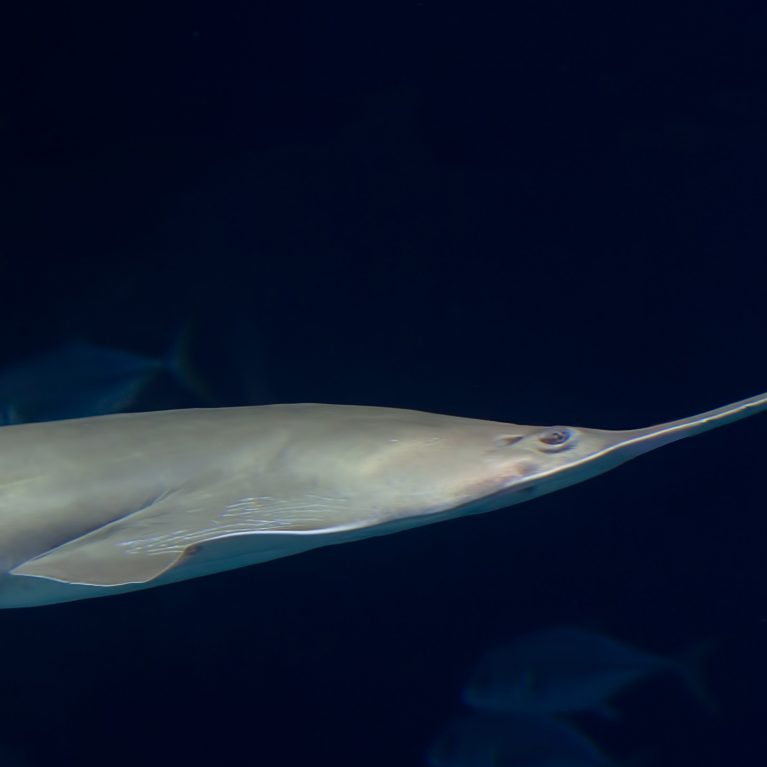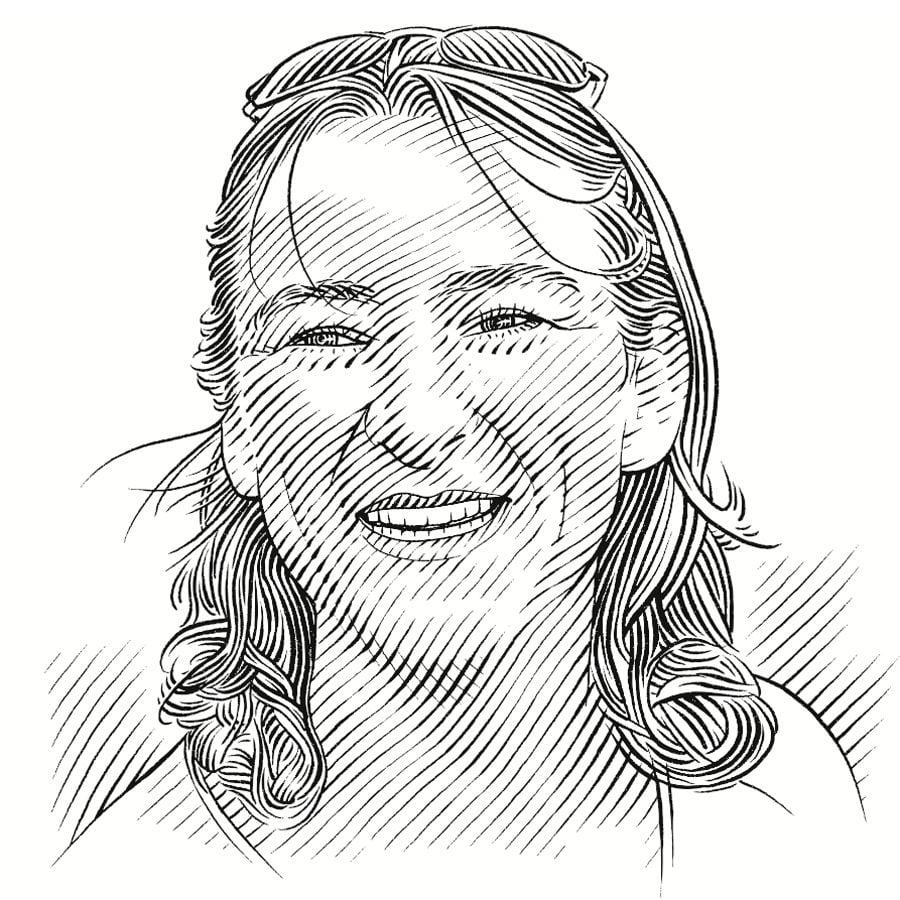Rediscovering sawfishes in West Africa
After 15 years of presumed extinction, Armelle is working with local communities to save the region’s remaining population of sawfishes – the world’s most endangered marine fish.
As a French marine biologist based at the oceanographic research centre in Brest, north-western France, I first focused on sharks 15 years ago, when I embarked on a project on basking shark ecology and movement patterns. I am now involved in the organisation Des Requins et des Hommes (DRDH; Sharks and Humans), which aims to bring shark conservation and human activity closer together in some of the areas that are most critical for elasmobranchs.
My interest in sawfishes developed during a year-long sailing trip in western Africa, which presented me with a unique opportunity...

AFRICASAW - Evaluate the regional status of Western Africa Pristidae.
To evaluate the status of the Pristidae and reverse the balance trend in the sawfish population of western Africa (CSRP area) by increasing biological knowledge and promoting self-governance.
Sawfishes are considered the most endangered elasmobranchs, listed as Critically Endangered by IUCN. Their population has been severely depleted due to habitat degradation, fisheries, bycatch and trade of by-products, such as rostra, teeth and fins. However, sawfishes are a part of the rich cultural history among the people of this region, and we aim to use public outreach and education to reconstruct the former and current distribution and abundance of sawfishes. Immediate action is required to better determine the status of the species in the region and to initiate biological studies to provide the data needed to establish management and restoration plans.
The assembled team is well-versed in outreach having already established similar reporting networks and education initiatives associated with the International Sawfish Encounter Database, International Shark Attack File, Elasmobranch National reporting programs in Europe and moreover the western Africa sub-regional plan of action for elasmobranchs (data collection framework, training sessions).
AFRICASAW has three main objectives:
- Evaluate key areas for Pristidae populations in the CSRP area by gathering existing data from national history museums, scientific expedition reports or any other source of Pristidae material (private collections, auction markets, seizure, aquariums, etc.) and update these data by organising a field trip along the western african coast to re-evaluate recent by-catch and sightings of sawfishes.
- Create, train and maintain of an ‘Alert Network’ for sawfish by-catch, sightings or sales in the CRSP area. Selected key people will be identified, trained and coached by the coordinator to develop the network and feel part of an active working group able to cover any information on sawfishes rapidly and efficiently (telephone with camera will be provide).
- Minimise human interactions with Pristidae to reduce direct or indirect mortality. On the basis of experiences from other sawfish conservation programmes and promotion of non-damaging fishing gear, design a specific protocol and educational session on how to safely catch a sawfish and how to contribute to enhancing scientific knowledge.

